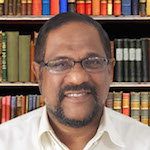Democracy, Nomocracy & The Oligarchy
“The kind of president (and Prime Minister) we need has little to do with ideology and more to do with a willingness to wield power to moral ends.”― George Friedman, The Next Decade: What the World Will Look Like. (Addition in parenthesis is mine).
Democracy is a system of government by the people typically through elected representatives. According to political scientist Larry Diamond, democracy consists of four key elements: (a) A political system for choosing and replacing the government through free and fair elections; (b) The active participation of the people, as citizens, in politics and civic life; (c) Protection of the human rights of all citizens, and (d) A rule of law, in which the laws and procedures apply equally to all citizens.
In Sri Lanka, the Constitution states that the legislative power of the People shall be exercised by Parliament, consisting of elected representatives of the People and by the People at a Referendum. (See Article 4 (a)).
To this extent, Sri Lanka is a practising democratic nation.
The Rule of law implies that every citizen is subject to the law, including lawmakers themselves. In Latin Lex, Rex (The Law is the King) as Samuel Rutherford (1644) would have it. Our Constitution states:
“All persons are equal before the law and are entitled to the equal protection of the law”. (12 (1)).
In this sense, it stands in contrast to an autocracy, dictatorship, or oligarchy where the rulers are held above the law. A government based upon the rule of law is called Nomocracy.
Oligarchy on the other hand is a model where power rests and is wielded by a minority or a small number of people. This can be a form of control by a noble class, a family or religious authority.
Article 3 of the Constitution reads, “In the Republic of Sri Lanka sovereignty is in the People and is inalienable. Sovereignty includes the powers of government, fundamental rights and the franchise”.
The Constitution further states that the Sovereignty of the People shall be exercised and enjoyed through the legislative power of the People exercised by Parliament, the executive power exercised by the President elected by the People and the judiciary. (vide. Article 4).
These are universally accepted as solid principles of democracy and governing pillars of modern civilised society. It is very clear from the above that at least constitutionally, there is no place in this country for a small number of people, whoever they are, to have control, influence, direct or command in an oligarchic fashion the affairs of the State.
Responsibility Of The Government

 By
By 